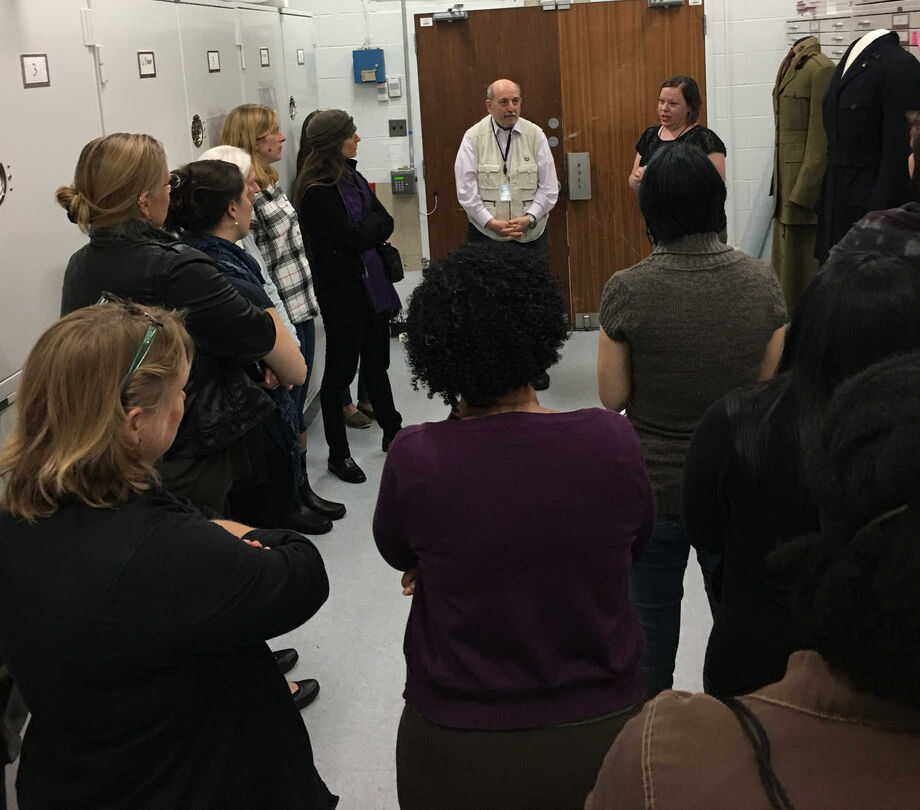In 2016, the University of Maryland (UMD) and the Smithsonian National Museum of American History received a grant from the National Endowment for the Humanities to host 100 Years of American Women in Uniform, a program for women veterans. 38 women veterans from 10 states and Washington, D.C. participated in the program, which spanned four weekends. Participants explored a wide variety of materials from a century of women’s military history—including diaries, documents, photos, scrapbooks, and artifacts from the Smithsonian collection. They enjoyed expert-led sessions, including several reflective writing exercises. And they learned how to contribute their and other veterans’ stories to the Library of Congress’s Veterans History Project. 100 Years helped deepen women veterans’ senses of identity and solidarity, as well as achieve greater visibility. As one participant wrote, “I had no idea how long women had been serving in the U.S. or any idea of the magnitude of their contributions. This program made me feel like I am part of a legacy.”
“This program has helped me process things I didn’t even know I needed to process.”
Read More
The weekend format and the time it afforded participants to get to know one another enabled participants to connect and share. And the rich humanities sources helped them delve deeper into the complexities of their experiences. Project Director Marian Moser Jones of the UMD School of Public Health recalled that “they started to see the value of text, both reading and producing text, as a way to get at aspects of their experience… . People really opened up. It was very powerful.” Participant Jerri Bell described one such moment. “One veteran brought many of the participants to tears when she shared a traumatic story from her time in the Army. She had told no one but immediate family for more than three decades. At the end of the day she said, ‘This program has helped me process things I didn’t even know I needed to process.’”
100 Years was a summit, one whose impact is still being realized. D.C.-area participants continued the conversation through a monthly book group. The program inspired several participants to pursue writing projects, ranging from memoirs to dissertations, on women’s military history. Others were inspired to share materials from the program through events sponsored by their local veterans’ organizations. Still others testified that they felt more connected to the community of women veterans, more committed to lifelong learning on the subject, and more motivated to record theirs and others’ stories in the future. With alumnae in 10 states and D.C., these ripple effects are resonating on a national scale.
